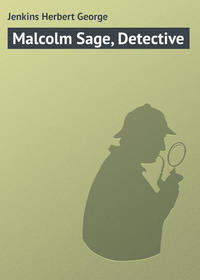
John Dene of Toronto: A Comedy of Whitehall
"Mr. Dene has been very kind," said Mrs. West presently. "I should miss him very much if he went away." There was regret in her voice.
"Now, mother, no poaching," cried Dorothy. "John Dene is mine for keeps, and if I let you come out with us and play gooseberry, you mustn't try and cut me out, because," looking critically at her mother, "you could if you liked. Nobody could help loving my little Victorian white mouse;" and she hugged her mother's knee, missing the faint flush of pleasure that her words had aroused.
Finding his welcome assured, John Dene had taken to joining Dorothy and her mother on their Saturday and Sunday excursions. The picnic had proved a great success, and Dorothy had been surprised at the change in John Dene's manner. The hard, keen look of a man who is thinking how he can bring off some deal was entirely absent. He seemed always ready to smile and be amused. Once he had almost laughed. She was touched by the way in which he always looked after her mother, his gentleness and solicitude.
"Wessie, darling," Marjorie Rogers had said one day, "you're taming the bear. He'll dance soon; but, my dear, his boots," and the comical grimace that had accompanied the remark had caused Dorothy to laugh in spite of herself.
"If ever I marry a man," continued Marjorie, "it will be because of his boots. Let him have silk socks and beautiful shoes or boots, and I am as clay in his hands. For such a man I would sin like a 'temporary.'"
"Marjorie, you're a little idiot," cried Dorothy.
"I saw John Dene a few days ago," continued Marjorie.
"Did you?"
"Yes, and I stopped him."
"You didn't, Marjorie." There was incredulity in Dorothy's voice.
"Didn't I, though," was the retort. "I gave him a hint, too."
"A hint." Dorothy felt uncomfortable. The downrightness of Marjorie Rogers was both notorious and embarrassing.
"Well," nonchalantly, "I just said that at the Admiralty men always kept their secretaries well-supplied with flowers and chocolates."
"You little beast!" cried Dorothy, remembering the chocolates and flowers that had recently been reaching her. "I should like to slap you."
"Why not give me one of the chocolates instead," said Marjorie imperturbably. "I saw the box directly I came in," nodding at a large white and gold box that Dorothy had unsuccessfully striven to hide beneath a filing-cabinet as Marjorie entered. "If it hadn't been for me you wouldn't have had them at all," she added. Presently she was munching chocolates contentedly, whilst Dorothy found herself hating both the chocolates and flowers.
At the end of the fifth week Blake wrote that the Destroyer would be ready for sea on the following Wednesday. The effect of the news upon John Dene was curious. Instead of appearing elated at the near approach of the fruition of his schemes, he sat at his table for fully half an hour looking straight in front of him. When at last he spoke, it was to enquire of Dorothy if she liked men in uniform.
That afternoon he worked with unflagging industry. It seemed to Dorothy that he was deliberately calling to mind every little detail that had for some reason or other temporarily been put aside. He seemed to be determined to leave no loose ends. Such matters as he was unable to clear up himself, he gave elaborate instructions to Dorothy that would enable her to act without reference to him. At half-past five, after a final glance round the room, he leaned back in his chair.
"I shall sleep some to-night," he remarked.
"Don't you always sleep?" enquired Dorothy.
"I sleep better when there are no loose ends tickling my brain," was the reply.
As Dorothy left the office a few minutes after six he called her back.
"If I've forgotten anything you'd best remind me."
"Mother," she remarked, when she got home that evening, "John Dene's the funniest man in all the world."
"Is he, dear?" said Mrs. West non-committally.
Dorothy nodded her head with decision. "He wastes an awful lot of time, and then he hustles like – like – well, you know."
"How do you mean, dear?" queried Mrs. West.
"Well, he'll sit sometimes for an hour looking at nothing. It's not complimentary when I'm there," she added.
"Perhaps he's thinking," suggested Mrs. West.
"Oh, no!" Dorothy shook her head with decision. "He thinks while he's eating. You can see him do it. That's why he thinks salmon is pink cod. No; John Dene is a very remarkable man; but he'd be very trying as a husband."
Dorothy spoke lightly; but during the last few days she had been asking herself what she would do when John Dene was gone. Sometimes she would sit and ponder over it, then with a movement of impatience she would plunge once more into her work. What was John Dene to her that she should miss him? He was just her employer, and in a few months he would go back to Canada, and she would never see him again. One morning she awakened crying from a dream in which John Dene had just said good-day to her and stepped on a large steamer labelled "To Canada." That day she was almost brusque in her manner, so much so that John Dene had asked her if she were not well.
The next morning when Dorothy arrived at the office, she found John Dene sitting at his table. As she entered, he looked round, stared at her for a moment and then nodded, and as if as an after-thought added, "Good morning."
Dorothy passed into her own room. She was a little puzzled. This was the first morning that John Dene had been there before her.
As she came out with her note-book she looked at him closely, conscious of something in his manner that was strange, something she could not altogether define. His voice seemed a little husky, and he lacked the quick bird-like movements so characteristic of him.
She made no remark, however, merely seating herself in her customary place and waited for letters.
He drew from his pocket some notes and began to dictate.
Never before had he used notes when dictating. Several times she glanced at him, and noted that he appeared to be reading from the manuscript rather than dictating; but she decided that he had probably written out rough drafts in order to assure accuracy. His voice was very strange.
"Did you sleep well last night, Mr. Dene?" she enquired during a pause in the dictation.
"Sleep well," he repeated, looking up at her, "I always sleep well."
Dorothy was startled. There was something in the glance and the brusque tone that puzzled her. Both were so unlike John Dene. She had mentally decided that he spoke to her as he spoke to no one else. She had compared his inflection when addressing her with that he adopted to others, even so important a person as Sir Bridgman North. Now he spoke gruffly, as if he were irritated at being spoken to.
Apparently he sensed what was passing through her mind, for he turned to her again and said:
"I'm not feeling very well this morning, Miss West, I – " Then he hesitated.
"Perhaps you didn't sleep very well," she suggested mischievously.
"No, I'm afraid that's what it was," he acknowledged Dorothy's eyes opened just a little in surprise. A minute ago he had stated that he always slept well. Either John Dene was mad or ill; and Dorothy continued to take down, greatly puzzled. Had he been drugged? The thought caused her to pause in her work and glance up at him. He certainly seemed vague and uncertain, and then he looked so strange.
When he had dictated for about half an hour, John Dene handed her a large number of documents to copy, telling her that there would not be any more letters that day. To her surprise he picked up his hat and announced that he would not be back until five o'clock to sign the letters. Never before had he missed lunching at his office. Dorothy was now convinced that something was wrong. Everything about him seemed strange and forced.
Once or twice she caught him looking at her furtively; but immediately she raised her eyes, he hastily shifted his, as if caught in some doubtful act.
At twelve o'clock lunch arrived, and Dorothy had to confess to herself that it was a lonely and unsatisfactory meal.
At five o'clock John Dene returned and signed the letters with a rubber stamp, which he had recently adopted.
"When are you going away, Mr. Dene?" asked Dorothy.
"I don't know," he responded gruffly.
"I merely asked because two people on the telephone enquired when you were going away."
"And what did you say?"
"Oh, I just said what you told me. A man called this afternoon also with the same question."
For a moment he looked at her, then turning on his heel said "good evening," and with a nod walked out.
Dorothy had expected him to make some remark about these enquiries. She knew that John Dene had no friends in London, and the questions as to when he was going away had struck her as strange.
The next day was a repetition of the first. A few letters were dictated, a sheaf of documents handed to her to copy, and John Dene disappeared. Again lunch was brought for her, which she ate alone, and at five o'clock he came in and signed the letters.
By this time Dorothy was convinced that he was ill. The strain of the past few weeks had evidently been telling on him. When he had signed the last letter she bluntly enquired if he felt better.
"Better?" he interrogated. "I haven't been ill."
"I thought you didn't seem quite well," said Dorothy hesitatingly; but he brushed aside the enquiry by picking up his hat and bidding her "good evening."
Dorothy was feeling annoyed and a little hurt; and preserved an attitude of businesslike brevity in all her remarks to John Dene. If he chose to adopt the attitude of the uncompromising employer, she on her part would humour him by becoming an ordinary employee. Still she had to confess to herself that the old pleasure in her work had departed. Hitherto she had looked forward to her arrival at the office, the coming of John Dene, their luncheons together and the occasional little chats that were sandwiched in between her work.
She had become deeply interested in the Destroyer and what it would achieve in the war. She had been flattered by the confidence that John Dene had shown hi her discretion, and had felt that she was "doing her bit." Again, the sense of being behind the scenes pleased her. She was conscious of knowing secrets that were denied even to Cabinet Ministers. The members of the War Cabinet knew less than she did about the Destroyer and what was expected of it.
John Dene was a man who did everything thoroughly. If he trusted anyone, he did it implicitly; if he distrusted anyone, he did it uncompromisingly. Where he liked, he liked to excess; where he disliked, he disliked to the elimination of all good qualities. Half measures did not exist for John Dene of Toronto.
When Dorothy discovered that all the old intimacy had passed away, and John Dene had become merely an employer, treating her as a secretary, she was conscious that the glamour had fallen from her work. Somehow or other the Destroyer had receded into something impersonal, whereas hitherto it had appeared to her as if she had been in some way or other intimately associated with it.
It was all very strange and very puzzling, she told herself. Sometimes she wondered if she had done anything to annoy him. Then she told herself that there was something more than personal pique in his manner. His whole bearing seemed to have changed, as if he had decided to regard her merely as a piece of mechanism, just as he did the typewriter, or his office chair.
It was at this period of her reasoning that Dorothy discovered her dignity. From that time her attitude was that of the injured woman, yet perfect secretary. Her sense of humour had deserted her, and she arrived at the office and left it very much upon her dignity. Even Mrs. West noticed the difference in her manner, and at last enquired if anything were wrong, or if she were unwell; but Dorothy reassured her with a hug and a kiss, and for the rest of that evening had been particularly bright and vivacious.
When Mrs. West mentioned the name of John Dene, Dorothy did not pursue the topic, although Mrs. West failed to notice that she was switched off to other subjects.
At the end of the week she noticed that John Dene handed her the week's salary in notes. Hitherto it had been his custom to place the money in an envelope and put it on her table. She concluded that this new method was to impress upon her that she was a dependent, and that the old relationship between them had been severed. That evening, Dorothy was always paid on the Friday evening, she held her head very high when she left the office. If Mr. John Dene required decorum, then he should have it in plenty from his secretary.
The next morning and the Monday following, Dorothy was very much on her dignity. She seemed suddenly to have become imbued with all the qualities of the perfect secretary. No hint of a smile was allowed to wanton across her features, she was grave, ceremonial, efficient. She worked harder than ever and, when she had finished the tasks John Dene set her, she manufactured others so that her time should be fully occupied.
For a day and a half she laboured to show John Dene that she was offended; but apparently he was oblivious, not only of having offended her, but of the fact that she was endeavouring to convey to him the change that had come about in their relations.
On the Monday evening he did not return to sign his letters until nearly six. By that time Dorothy was almost desperate in her desire to show this obtuse man that she was annoyed with him. She felt at the point of tears when he bade her good night and left the office, just as Big Ben was booming out the hour.
She would go home and forget all about the stupid creature, Dorothy decided, as she hastily put on her coat and dug the hat-pins through her hat. On reaching the street she saw John Dene standing at the corner of Charles Street. For a moment she thrilled. Was he waiting for her? No, he was looking in the opposite direction, apparently deep in thought. She saw a taxi draw up beside him. The driver, a little man with a grey moustache, Dorothy remembered to have seen him several times "crawling" about on the look-out for fares. The taxi stopped and the man bent towards John Dene. Dorothy stood and watched. John Dene was right in her line of route to the Piccadilly Tube, and she did not wish him to see her.
For a moment John Dene seemed to hesitate, then with a word to the driver he opened the door and got in. Suddenly Dorothy remembered Colonel Walton's warning. Impulsively she started forward, just as the taxi started and a moment later whizzed swiftly past her. John Dene was evidently in a hurry. At that moment her attention was distracted by shouts and a smash. A small run-about car had suddenly dashed across Regent Street from the west side of Charles Street and crashed into the forepart of another taxi. A crowd gathered, a policeman arrived, and she had a vision of an angry taxi-driver, another man pointing to the roadway, as if the blame lay there, whilst the passenger from the taxi was running towards the Florence Nightingale statue shouting and waving his arms at the vehicles passing along Pall Mall.
Slowly Dorothy turned and pursued her way up Regent Street. She was tired and – and, oh! it was so stupid, going on living.
That night as she was undressing she remembered the passenger from the second taxi. Why had he been so interested in the taxi that was bearing John Dene away, and why had he tried to signal to other vehicles passing along Pall Mall? He had seemed greatly excited. Above all, why had John Dene taken a taxi when he had been warned against it?
CHAPTER XII
THE DESTROYER READY FOR SEA
James Blake stood in the bows of the Toronto gazing down at the long, cigar-shaped object that lay like a huge grey cocoon reposing in her bowels. The morrow would see the Destroyer floated out to carry her three hundred odd feet of menace into the blues and greys of the ocean.
Blake was a man upon whom silence had descended as a blight; heavy of build, slow of thought, ponderous of movement, he absorbed all and apparently gave out nothing. His most acute emotion he expressed by fingering the right-hand side of his ragged beard, whilst his eyes seemed to smoulder as his thoughts slowly took shape.
As he gazed down at the grey shape of the Destroyer's hull, there was in his eyes a strange look of absorption. For nearly two years he had lived for the Destroyer. It had been wife and family to him, home and holiday, labour and recreation, food and drink. Nothing else mattered, because nothing else was. The war existed only in so far as it was concerned with the Destroyer. It was the mise en scêne for this wonder-boat. It was to be her setting, just as a stage is the setting for a play.
As he gazed down at her, he fumbled in the pocket of his pilot-jacket and drew forth a cigar, one of a box that John Dene had sent him. Slowly and deliberately he pulled out his jack-knife, cut off the end and, taking a good grip of the cigar with his teeth, lighted it, all without once raising his eyes from the Destroyer.
As he puffed clouds of smoke for the breeze to pick up and scurry off with to the west, he thought lovingly of the work of the last two years, of the last month in particular. Never had men worked as had James Blake and his "boys." It was not for country or for gain that they slaved and sweated; it was not patriotism or pride of race that caused them to work until forced, by sheer inability to keep awake, to lie down for a few hours' sleep, always within sound of their comrades' hammers, often beside the Destroyer herself. It was "the Boss" for whom they worked. They were his men, and this was their boat. Every time John Dene wrote to Blake, there was always a message for "the boys." "I know the boys will show these Britishers what Canada can do," he would write, or, "see that the boys get all they want and plenty to smoke." Remembering was John Dene's long suit; and his men would do anything for "the Boss."
Blake had not spared himself. When not engaged in the work of overseeing, he had thrown off his coat and worked with the most vigorous. He seemed never to sleep or rest. Every detail of the Destroyer's construction he carried in his head. Plans there had been in his shack; but what were the use of plans to a man who had every line, every bolt and nut engraved upon his brain. He had them merely for reference.
And now all was ready. That morning the Destroyer had been floated into the Toronto to see that everything on the mother-ship was in order. Once floated out again, there remained only the taking on board stores and munitions. These lay piled upon the Toronto's deck ready at the word of command to be transferred to the Destroyer.
In design the Destroyer was very similar to the latest form of submarine: 310 ft. 6 ins. in length, she had a breadth of 26 ft. 6. ins. amidships, tapering to a point fore and aft. She carried two ordinary torpedo tubes and mounted two 3 in. guns; but these were in the nature of an auxiliary armament. Her main armament consisted of eight pneumatic-tubes, two in the bows, two in the stern, one on either bow and one on either beam. These fired small arrow-headed missiles, rather like miniature torpedoes fitted with lance-heads for cutting through nets. They had sufficient power to penetrate the plates of a submarine, and were furnished with an automatic detonator, which caused the bursting charge to explode three seconds after impact. The charge was sufficient to blow a hole in the side of a "U" – boat large enough to ensure its immediate destruction.
These projectiles were rendered additionally deadly by the fact that their heads became automatically magnetic as they sped through the water. Thus the target against which they were launched achieved its own destination. They were fitted with small gyroscopes to keep them straight until the magnetic-heads began to exert a dominating influence.
Amidships was the conning-tower, with its four searchlights, so arranged as to be capable of being used singly or together. Thus it was possible to illuminate the waters for half a mile in every direction. Above the conning-tower were two collapsible periscopes, and beneath it the central ballast, beneath which lay the charge of T.N.T. that John Dene had boasted would send the Destroyer to Kingdom Come should she ever be in danger of capture.
Abaft the conning-tower were the engines, a switchboard, and finally the berths of the engine-room staff. For'ard of the conning-tower were the berths of the crew, and still further for'ard were those of John Dene and the officers. John Dene's invention of a new and lighter storage-battery had enabled him to control the Destroyer entirely by electricity. She possessed an endurance of fifteen-hundred miles, and as for the most part she held a watching brief, this would mean that she could remain at sea for a month or more.
Her speed submerged was fourteen knots, which gave her a superiority over the fastest German craft, and she could remain submerged for two days. She could then recharge her compressed-air chambers without coming to the surface by means of a tube, through which fresh air could be sucked from the surface, and the foul discharged. These were weighted and floated in various parts in such a manner that they could be thrown out in a diagonal direction. The object of this was to protect the Destroyer from depth-charges in the event of her whereabouts being discovered by an enemy ship, which would render it dangerous for her to come to the surface.
"The Destroyer's a submarine," John Dene had remarked, "and submarines fight and live under water and not on it."
Consequently in designing the Destroyer he had first considered the special requirements entailed by the novelty of the methods she would employ. She had deck-guns, periscopes and torpedo-tubes; but they were in every sense subsidiary to those qualities that rendered her unique among boats capable of submersion, viz., her searchlights and her magnetic projectiles. Under water there were only two dangers capable of threatening her – mines and depth-charges. Properly handled and without mishap, there was no reason why she should ever return to the surface except in the neighbourhood of her own harbour.
Her most remarkable device, however, was the microphone, so sensitive that, with the aid of her searchlights it would enable the Destroyer to account for any "U" – boat that came within seven or eight miles of where she was lying.
As Blake stood surveying his handiwork, he was joined by his second-in-command, Jasper Quinton, known among his intimates as "Spotty," a nickname due to the irregularity of his complexion. Quinton was an Englishman who had gone to Canada to make his fortune as a mining-engineer. Soon after war broke out he had successfully applied to John Dene for a job, and had acquitted himself so well that John Dene had taken him into his confidence in regard to the Destroyer, and "Jasp," as he called him, had proved "a cinch." John Dene made few mistakes about men and none about women: the one he understood, the other he avoided.
"Spotty" Quint on spat meditatively upon the hull of the Destroyer. He was a man to whom words came infrequently and with difficulty; but he could spit a whole gamut of emotions: anger, contempt, approval, indifference, all were represented by salivation. If he were forced to speech, he built up his phrases upon the foundation of a single word, "ruddy"; but apparently with entire unconsciousness that it had its uses as an oath. To "Spotty" Quinton, John Dene was the "ruddy boss," his invention the "ruddy Destroyer," the enemy the "ruddy Hun," the ocean the "ruddy water." He served out his favourite adjective with entire impartiality. He no more meant reproach to the Hun than to John Dene. He tacitly accepted them both, the one as a power for evil, the other as a power for good.
As Quinton silently took up a position by his side, Blake turned and looked at him interrogatingly.
"Ruddy masterpiece," exclaimed Quinton, spitting his admiration.
Blake gazed upon the unprepossessing features of his subordinate, and tugging a cigar from his pocket, handed it to him.







